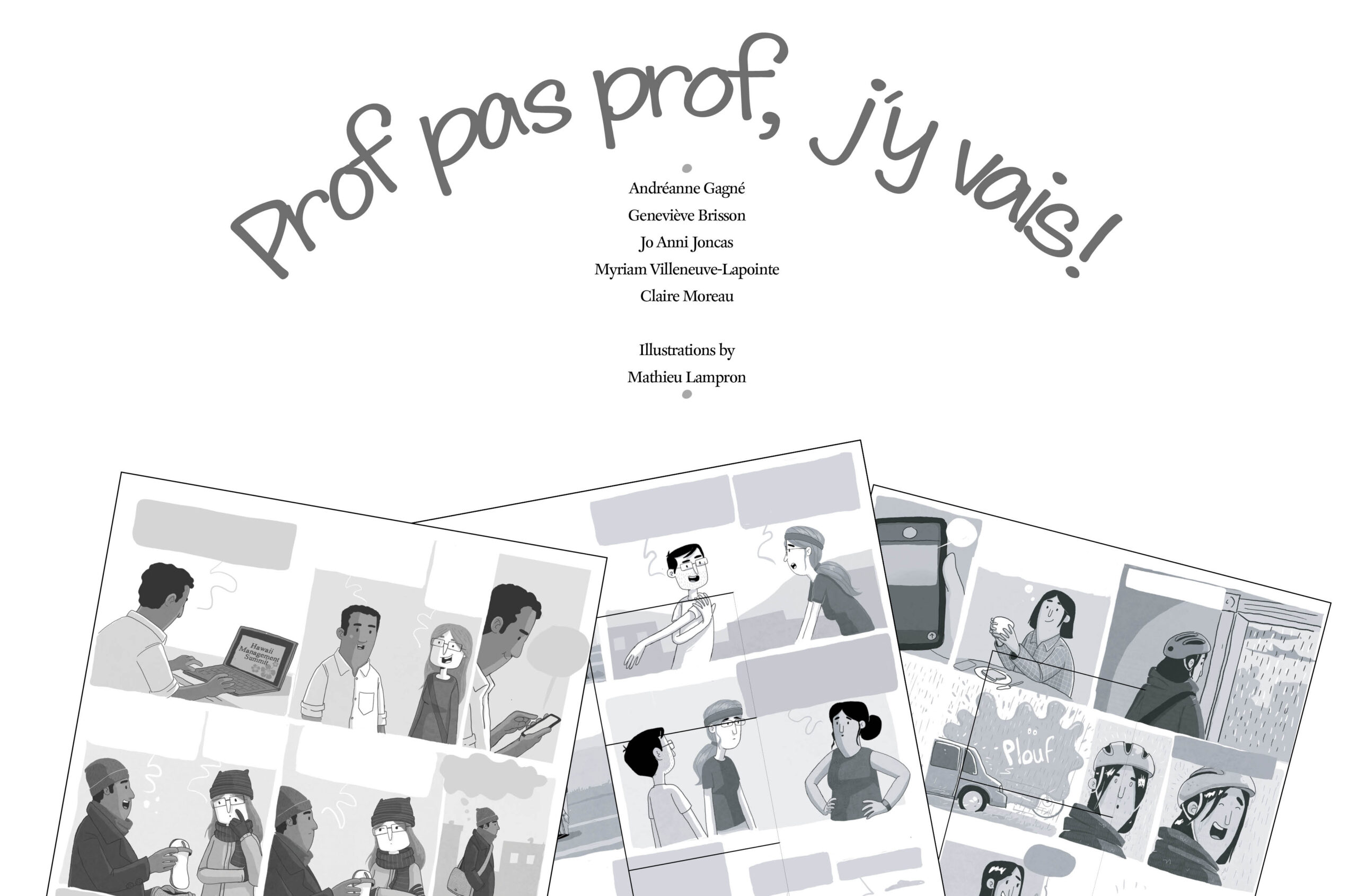We need an outcomes-based approach to doctoral education
It’s crucial that we restructure our PhD programs from beginning to end to reflect the actual – as opposed to imagined – career outcomes of our students.

Recently, Statistics Canada published its “Labour market outcomes of postsecondary graduates, class of 2015.” No one should be surprised that the report does nothing to lessen the urgency of the need to reform doctoral education in the 21st century. In fact, several statistics are downright concerning for an educational enterprise that successfully places but one-fifth of its graduates on the career path for which it was designed.
Let’s start with full-time employment. In most fields of study, more male and female PhDs work in part-time jobs than those with master’s degrees; importantly, two in five PhDs working part-time are doing so involuntarily. Statistics on full-time employment confirm that a master’s degree is a much more dependable path to full-time work than a PhD, and these numbers hold for all but one field of study. Where median income is concerned, although PhD incomes are higher in most fields, the numbers do not make a strong economic argument for taking the extra four to eight years required to complete the terminal degree. Even when we look at more qualitative comparators, although there is some variation, for the most part the job satisfaction of graduates with masters and PhD degrees is comparable.
Readers of this publication know how much ink has been spilled discussing how to address the imbalance between the increasing number of PhDs produced by research universities and the decreasing number of tenure track (research) positions across the board. As a humanities PhD, I am well aware that students who pursue doctoral studies have complex and varied motivations, and getting a job is rarely the main reason they choose the path to the PhD. Nevertheless, I reject that this is an either/or question, and what follows is my best attempt to plot a middle course for badly needed reforms, not just for doctoral education but for Canadian society as a whole.
My goal is to lay out what an outcomes-based approach to doctoral education would look like if by “outcomes” we’re referring to the actual as opposed to imagined career outcomes of our students. Such a turnabout in doctoral curricula would start by incorporating the data and conclusions produced by the many recent studies on PhD career outcomes across Canada into reimagined curricular pathways, course requirements, assessment exercises and evaluation, as well as experiential opportunities in an era in which equity and diversity issues and policies are becoming ever more important and urgent.
McGill University, the University of Toronto, the University of British Columbia, and my own institution Concordia University, have carried out extensive studies of the career outcomes of our PhD alumni. A well-known example is Paul Yachnin’s TRaCE initiative, which tracked 10-year cohorts of humanities and social sciences PhDs in some 25 Canadian universities. One thing that is striking to the eye is how uniform the results of these studies are. They emphatically confirm that no more that 25 percent of the PhD graduates of any one of these institutions secure tenure-track positions after graduation. An often-overlooked detail is that across North America only one-fifth of these end up working in research intensive institutions, which is where their doctoral training would seem to be the most relevant. Although the principal goal of these studies was to track career outcomes, the data they provide should inform significant revisions of PhD curricula across the board.
In my view, the place to begin such renewal is by reframing the relationship between research-based outcomes and professional development in our programs. I am not at all suggesting we water down the research and communication skills we cultivate in our students but rather that we diversify the possible directions our graduates can take these same skills. A recent study of the views of faculty members in political science redefined PhD learning outcomes in this way: “to train future researchers, some of whom will go on to academic careers.” As stated above, I do not believe that this is a zero-sum game, especially in an era in which media literacy has become vital to the dissemination and application of scientific knowledge.
Even though research training would remain its principal activity and raison d’être, refocusing the PhD in this way would entail significant structural changes, changes that go beyond current attempts by universities to provide add-on professional skills in the fashion of Concordia’s GradProSkills or McGill’s Skillsets programs. As the associate dean who oversees Concordia’s GradProSkills program, I can tell you that we have continuously modified and increased our offerings in response to our own industry research as well as what students and graduates are telling us. That being said, until this training is fully incorporated into graduate curricula it will continue to function as an ancillary instead of becoming a constitutive element of the doctoral student’s education and training. An evolution of this nature would touch every aspect of the PhD curriculum, of which I have identified five principal, interconnected structures.
1. Career and wellness counselling
A first step would bring career and wellness counsellors into contact with students at the beginning of their programs as well into the planning and delivery of curricular content. There is compelling evidence that career and wellness workshops and activities can be productively and effectively combined. Seeing career and wellness counsellors as stakeholders and bringing them into the curricular reform process would produce conversations capable of linking program outcomes with realistic career objectives and planning around student wellness, thus improving both the productivity and the career preparedness of our students. It would also provide support for supervisors and faculty members who have not been trained to function as career counselors for their students, most of whom will not land full-time faculty positions.
2. Curriculum
The second step involves a curricular structure that has proven incredibly resilient to change. Even as research areas, tools and applications evolve towards more interdisciplinary and team-focused projects and enterprises, the structure of graduate programs has remained largely untouched. There is some variety between disciplines, of course, and so the recommendations that follow are mindful of the fact that programs in business and economics, for instance, are course-heavy at both the masters and PhD levels, with the humanities and social sciences close behind. By contrast, science and engineering programs tend to have fewer courses so that students can begin their research sooner. In general, this would be the model to follow, since, not coincidentally, these programs also tend to have shorter times to completion as well as a better track record placing their graduates in well-paying positions outside of academia. I am thinking specifically of the interdepartmental and interfaculty programs we have been designing at Concordia.
Here courses tend to fall into two categories: on the one hand, interdisciplinary courses that teach students to work across disciplinary boundaries by giving them a certain fluency in the other discipline(s). Such courses are not designed to produce researchers in the specific area being taught but rather to train students to understand other scientific and disciplinary languages. The remaining course requirements feature a small number of very tightly focused courses directed at the specific research questions professors and students are pursuing.
An analogous, outward-facing scenario can be imagined wherein students learn experientially in the community or industry while involved in their research, with the goal of learning the kinds of languages, research practices, and soft skills that will allow them to gain fluency in diverse professional and research environs as well as develop professional networks that can serve them in their post-doctoral job searches. We have seen examples of this at Concordia in doctoral programs that emphasize industry collaborations, or social action research and/or research creation with community partners. Combined with an industry, governmental, or community internship, this kind of training places our graduates on more solid footing to explore professional opportunities in a much-expanded economic and institutional landscape. The Tri-Council has designed a model for this kind of program in its CREATE initiative, which prioritizes professional training and experiential opportunities.
3. Professional skills
Another question to ask is how the professional skills training we currently provide on an extra-curricular basis can be integrated into, not added onto, the curriculum, and this would include both theory and practice. Written and oral communication of research for diverse audiences, project management, grant writing, to mention a few, should be brought into program learning outcomes and learning activities. In addition, the introduction of the kind of training provided through Concordia’s Public Scholars program in the public dissemination of research and engagement in cultural and even political dialogues into the classroom will not only further our students’ professional development but also build a platform for strengthening the role of the university in society at a moment when so many challenges would benefit from our research and scholarship.
4. Assessments and their evaluation
Several studies concerning the future of the PhD have focused on comprehensive exams and the dissertation – for example, the CAGS consultation document “Reimagining the PhD: Doctoral Comprehensive Exam,” from September 2017. Here at Concordia, we have recently undertaken an environmental scan of practices and perceptions around the comps, which haven’t changed very much since their introduction almost a century ago. Based on our responses from current doctoral candidates, although the comps are largely seen as useful, significant changes would benefit our students’ progression towards their research as well as help prepare them for non-academic careers. Again, the idea would not be to diminish the rigor of either exercise but to more realistically tie both the activities and their evaluation to an expanded understanding of the relation between research training and the diverse careers our graduates actually pursue.
The Higher Education Quality Council of Ontario is one of several organizations to advocate replacing the comprehensives with exercises that better reflect the cumulative nature of doctoral training, such as portfolios. Moreover, in general, assessments should be more frequent, more holistic, and more formative rather than serving as summative hurdles for students to overcome. If, additionally, we make these learning activities more collaborative and less isolating, students will be better prepared for work environments outside of academe as well as in the more collaborative and interdisciplinary milieux that characterize our institutions today. As for the dissertation, repeated calls have come for more diverse platforms and styles, with the goal of serving as a bridge to more diverse careers rather than a hurdle.
5. Recruitment and funding
Finally, something should be said about recruitment and funding, not only for students but for programs. I began this list of recommendations by advocating for the incorporation of career and wellness counselling into the very beginning of the student’s journey through doctoral training. Ideally, students would be informed about likely career outcomes at the recruitment stage based on data collected by the university on the career outcomes of their alumni. Senior administration should encourage programs and departments to adjust to the realities facing their future graduates by helping to incorporate structural changes into the curriculum and redirecting funding to provide things like internships, networking events, and mentoring opportunities with alumni. Again, what we are describing here is a professional outcomes-based approach for doctoral education and professional training that can help move doctoral education into its next and, hopefully, greatly expanded phase of development.
As a coda, I would like to share a recent conversation with graduate school deans on the executive board of the Northeastern Association of Graduate Schools. We met in late October to plan the annual spring meeting for 2021, and a common concern/question was not whether but rather how much universities were planning to reduce their intake of doctoral students. COVID-19 is of course the immediate pressure point in these discussions, nevertheless, we have seen convincing evidence that this situation will not be temporary but will instead effect permanent changes on higher education. It is also clear that if the primary goal of doctoral programs continues to be the reproduction our existing way of doing things then the most logical and ethical decision we can take is to reduce PhD program capacities at the precise moment when innovative research on a vast array of questions, issues, and problems in the sciences, arts and humanities, and social sciences is most urgently needed.
What we should instead be asking ourselves is how we can better leverage our research training in diverse sectors of Canadian and international societies. Rather than retrenching our resources and efforts in the effort to prove our societal relevance, we should be sending adequately equipped PhDs out into society with the training and experience to effect immediate and lasting change. What I am saying, in other words, is that we should be trying to figure how to increase our doctoral capacity by reimagining our programs from end to beginning.
Brad Nelson is associate dean for academic programs and development in the school of graduate studies at Concordia University.
Featured Jobs
- Creative and Cultural Industries - Assistant Professor (Fashion Studies and Cultures)Chapman University
- Research Chair in Systems Transformation and Family Justice (Faculty Position)University of Calgary
- University LibrarianYukon University
- Architecture - Assistant ProfessorMcGill University
- Human Resources and Organizational Behaviour - Lecturer, 2-year termUniversity of Saskatchewan









Post a comment
University Affairs moderates all comments according to the following guidelines. If approved, comments generally appear within one business day. We may republish particularly insightful remarks in our print edition or elsewhere.
9 Comments
At the University of Manitoba Department of Biological Sciences, faculty anticipated the desired outcomes of completing a PhD program. In 2009, the notion of a Comprehensive was omitted from the PhD program, in favour of a Candidacy Examination that would take the form of a grant application that was independently developed, written, presented, and orally examined, all within a 2-month window. Feedback on the proposal is written, and the proposal is revised on that basis before being presented and examined by a committee that includes the student’s advisor, advisory committee members, a member of the department’s graduate program committee, and a non-voting chair.
Grant writing skills are so important in research – there’s nothing new there, and the examination format reinforces the essential skills of synthesizing the literature in a new area, organizing thoughts, posing reasonable/testable hypotheses, formulating approaches to the research and time-management skills in planning a program of research.
As well, the need for strong communication skills, both written and oral, is huge in any position in industry, research, and academia. And the capacity to accept and effectively utilize feedback, and then to defend ideas and approaches, takes the successful Candidate another big step toward successful employment and/or post-doctoral training.
We are less and less able to predict the future landscape of research, or know which of a plethora of technical skills will be the best training for each particular graduate student. We try, but a life happens, and the path changes so often, we can get dizzy. But the education we provide in doctoral programs should. at the least, give each new PhD strong “legs” and the essential skills required for resilience and intellectual flexibility.
The major issue is that Canada produces much more PhDs than actual needs. Another study conducted by High Education Quality Council of Ontario shows more than 80% Canadian PhDs are not able to find full-time jobs forever.
The most effective way to solve the problem is that significantly reducing most PhD numbers in humanities and social science. Because PhDs in humanities and social science only will be hired in universities. In general labor market, no one wants to hire someone who has higher degrees than themselves. This is the reality.
Yes, exactly. I regret doing my PhD. The experience wasn’t especially enlightening. I learned more during my Masters degree and frankly, value it more than I do my PhD. In general, I think students are seen merely as funding units, with little regard for ability to provide effective supervision to promote furthering the PhD student’s expertise.
For Humanities and Social Science PhD’s the TT number is 25%; while for Biology it is 10%. It is perhaps low in Engineering because many engineers plan early on to leave academia.
In the meanwhile, among 15 international peers, Canada ranks 14th in the production of PhD’s, so we are already producing way fewer PhDs than most of the countries we consider our peers.
Finally, Canada ranks woefully low on something called the innovation scale, economically, socially, and one factor in this ranking is the number of PhDs that move into society in diverse careers after graduation.
You put all this together, and the answer is not to simply cut the number of PhD students but to refocus their curricular and para curricular training to allow them to make a better and more impactful transition out of their studies.
The solution is simple: cut the number of PhD graduates being pumped out by Canadian universities. Cut programs and hard cap the number of incoming PhD students.
My advisor had 15 students at one time during my studies. It was a ludicrous situation for everyone. I think two of them actually ended up with university faculty jobs.
YES! This is so true.
thanks for this tough, thoughtful, and forward-looking piece. it should incite serious conversations in depts across the country about their PhD programs
Thanks, Paul.
Sorry I am getting to these comments so late!
This is a well documented article for the urgent REFORMS that graduate schools, especially PhD. programs in the social sciences, are in urgent need of!!!